The Greatest Minds and Ideas of All Time

Author: Will Durant, winner of the Pulitzer Prize and the Medal of Freedom / compiled and edited by John Little What is your motivation for reading a book? Perhaps just like me, for a variety of reasons. But one thing is very clear, reading wide provides one of the bases for a wide perspective of life, business, and nations. Another thing close to that is travels and other forms of exposure. So, the greatest minds and ideas of all time is not a business book per se, but it is largely an account of the civilization we see today, including that of business. It is Will Durant’s ranking of minds and ideas that have shaped civilisations. Of course, he does not expect everyone to agree with him, but he was very clear of his criteria. Particularly interesting are the chapters on “the ten greatest thinkers” and the “ten peaks of human progress”. The criteria for the ten greatest thinkers are those who thoughts “have had an enduring influence upon mankind”. They are Confucius, Plato, Aristotle, Saint Thomas Aquinas, Copernicus, Sir Francis Bacon, Sir Isaac Newton, Voltaire, Immanuel Kant, and Charles Darwin. The section on the ten peaks of progress makes one really think of how things have been taken for granted, because these things come ‘natural’ today. They are Speech, Fire, The Conquest of the Animals, Agriculture, Social Organisation, Morality, Tools, Science, Education, and Writing and Print. Let me add that the book is not even as fascinating as the man. Will Durant lived between 1885 and 1981 and wrote two major books. That is not so much fascinating, right? Yes, but he wrote an eleven-volume book for 50 years – The Story of Civilization. Now, that is someone I think you should read.
Lagos: Supernatural City – Tales of Survival, Spirituality, and the Struggle for Power in Africa’s Biggest Metropolis
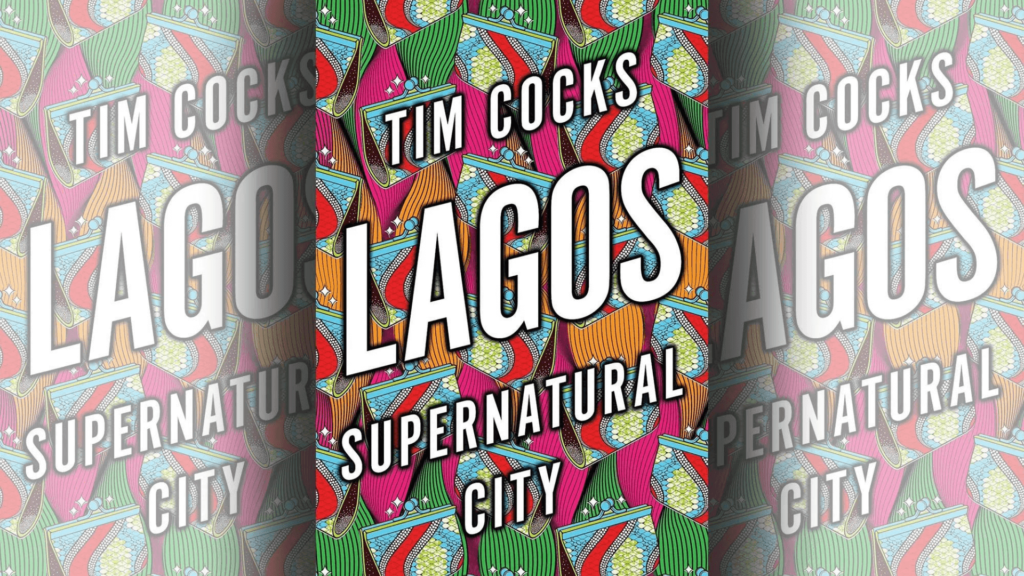
Author – Tim Cocks Lagos is the “place” in Nigeria, and the place has perhaps been captured best in this book. A book like this is always a good read because it provides a perspective, often a dispassionate one, of an outsider looking inside. Most times, they are often able to describe a pattern that has eluded those that have been born and immersed in the system. Lagos – supernatural city is a documentation of the “life” stories of seemingly unconnected individuals about lives in Lagos. Indeed, the book describes itself as “an intimate portrait of life in one of the most vibrant cities in Lagos”. The book is about the beliefs and “spirituality” of these Nigerians. That is, how they confronted the myriads of challenges in Lagos by calling on the different gods they knew. Two exceptional features in this book are quite interesting. The characters are known, traceable, and recognized. They are not pseudo characters. Because of that, it was interesting reading what Cocks wrote about these people. The second is that the book is a validation we all have dreams, a burning desire to do well in life. However, in Lagos and broader Nigeria, doing well requires a combination of many things. It cannot be limited to hard work or diligence, family or friends, innovation, or knowledge. For every successful individual, there is that ‘extraordinary’ element and feature about their success. That is why this book is very fascinating, narrating that side of majority of Nigerians. I have a remote personal connection to one of the stories. On page 189, Cocks wrote, “The Conflict for control of Ajah was long, sporadic and often futile”. That conflict led to my wife leaving her banking job in 2006. Based in Ajah at the time and working on the mainland after the banking consolidation exercise, she was always arriving home late. In those times, it was a daily struggle to arrive home safely because of the fight in Ajah. Unable to secure transfer at the bank, she reluctantly left the banking role. Just as policy have consequences, conflicts, no matter how small, have consequences, sometimes, they are tangential. In Lagos today, as it is the case in the whole country, there is now a widely accepted notion that the next few years will require all the “skills” of survival one has ever learnt. The economy is tough, and it is no coincidence that many of those that can leave, are leaving in droves. For those left, please consider one of Cocks final comments in the book, “The venues change (and I will add that the people also change), but the underlying anxiety was always the same. The wheel of fortune is spun by forces no. human has ever managed to control. Wouldn’t you want to appease them if you could?”
The Oil Curse: How Petroleum Wealth Shapes the Development of Nations

Author – Michael L. Ross Did you know that Nigeria’s real per capita income has rarely changed since independence? The graph below shows Nigeria’s per capita income 1960 – 2019, before Covid – 19 and the Russia / Ukraine shocks. It shows that the average Nigerian is better off by just US $1,000, compared to 1960. The global average is three times better. The per capita income was US $1,367 in 1960 and was US $2386 in 2019. Over a 60-year period, average per capita income increased by a mere US $0.16 cents annually, equivalent of less than N80 in today’s Naira. The data is adjusted for inflation using 2010 constant prices. Nigeria’s GDP Per Capita 1960 – 2019 in 2010 constant prices The reason for this poor economic performance is lucidly explained by Michael Ross. It is relevant because, since the 1970s, Nigeria hasbeen trying to deal with the “curses” that oil wealth brought to the country, and a new President trying to do give it another impetus. This book is an inglorious description of all that has gone wrong with Nigeria and many other developing nations that stumbled into oil wealth in the 1970s. It is a political economic explanation of how a combination of factors led to the oil price shock of 1973, including the decline of the powers of the oil majors, squeeze in supply, and the rising nationalization of oil companies in that period, especially after OPEC was established. The historical context was a good reading, but perhaps the most ingenious part of the book is how it explains how oil revenue, as a source of government revenue, the size and scale of it, the secrecy of it, and the capital-intensive nature of it helps shifts economic and social changes in oil wealth developing nations that overall benefit is suspect. Its effects include less democratic institutions, gender inequality, violence, and poor growth. Reading the book, you will make you understand how the size of Nigeria’s government grew, the indigenisation and nationalization policies of industries in the 1970s, the rise of the military in the 1970s through the 1990s, the low ratio of taxation to government revenue, corruption, and the inequality it propels. The good news is that democracy gives us a chance to leverage on the oil wealth, and minimise the curses associated with it. It is a good book to read at this time, so mistakes of the past are not repeated again and again.
Reforming the Unreformable – Lessons from Nigeria
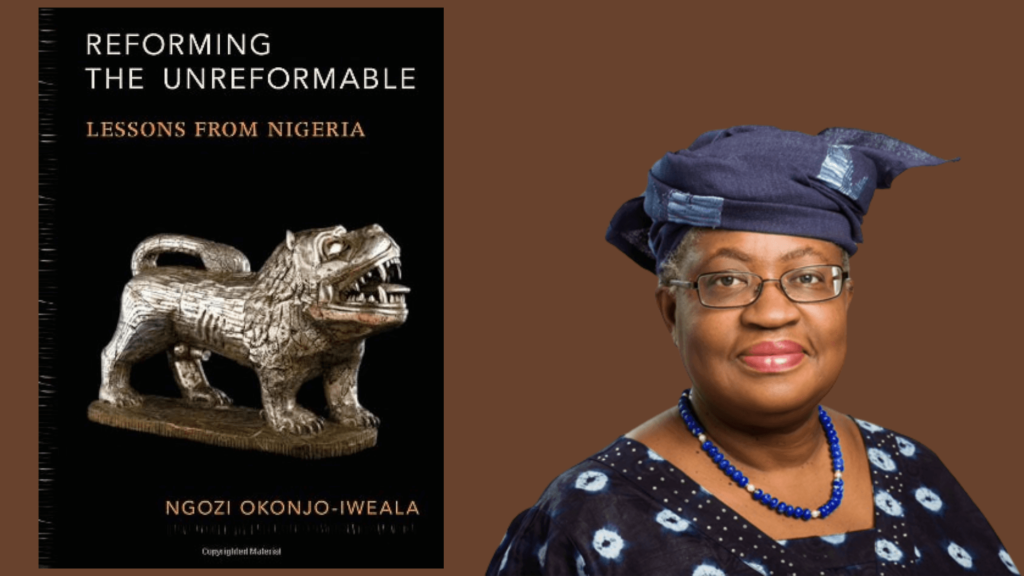
Author: Ngozi Okonjo-Iweala This is not a new book, but it is perhaps the most relevant book for Nigeria today. While “why growth matters” provided the successful reform story in India, this book provides the first-hand experience of the challenges of reforms in Nigeria. There are so many reasons why this book is relevant for today’s Nigeria. First, it is a major account of why, how, and the results of the set of economic reforms carried out between 2003 – 2007 during President Olusegun Obasanjo’s second term in office. Second, it provides great context of what happens when economic reforms are not sustained. Third, it is a reminder that reforms are never easy; they are complex and are not always successful. Fourth, and I think this is the most painful part, it shows that when reforms are not sustained, they will have to be repeated in more painful circumstances. Oh yes, the economic management team, as explained in the book, was also determined to remove fuel subsidies at the time. NOI says in the book, “In late October 2004 …we all heard the announcement of an increase in gas prices at the pump. Demonstrations and marches on Abuja immediately ensued, led by labour (led by Adams Oshiomole)…The demonstrations went on for a few days and unfortunately turned violent…and six people were killed.” Then, the subsidy was just about US $1 billion. Now, the same Adams Oshiomole has helped to stop demonstrations by labour this time. Reading the book again reminds one of the concrete and genuine progress this group of people made on reforms in Nigeria, such as: So, the question is that, following the success of the reforms and the institutions established, why did we fail to build on them since 2007? The answer is that there is a difference between the letter (law) of economic reforms and the spirit of reforms. Between 2003 and 2007, the team, though trying to establish the institutions of reforms, as mentioned above, they had the spirit of reform. Since 2007, and especially in the last eight years, there was no clue what reforms was about. Otherwise, it is irreconcilable to have borrowed N22 trillion from the Central Bank of Nigeria (CBN) when there was MTEF, FSS, and the Fiscal Responsibility Act. Finally, because the success of the first set of reforms have been squandered, especially by the disastrous last 8 years of President Buhari, President Tinubu must start all over again. As then, and now, as NOI said in the book, “our first order was to establish credibility, fairness, and social trust”.
Why Growth Matters – How Economic Growth in India reduced poverty and the lessons for other developing countries
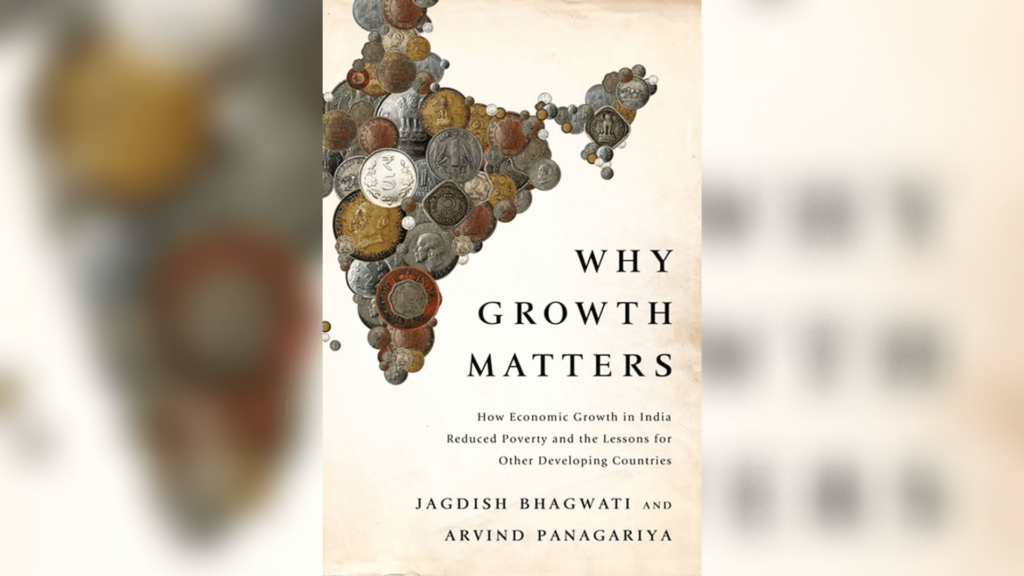
Authors: Jagdish Bhagwati and Arvind Panagariya This book has been around for about a decade, but a good book to read nonetheless in the week that Nigeria has a new President and a new impetus for economic growth in Nigeria to understand again how India pursued economic growth through comprehensive reforms since 1991. First, a quote of what George Akerlof, a Nobel Laurette in economics 2001 said about the book, “the lessons from the spirit of 1991 are not just relevant for India today; they are also of prime importance for the billions of citizens of low-income countries around the globe.” And that is exactly what this book is all about. First, the book traced the potential of the Indian economy since independence in 1947 and why a mixed bag of socialist policies and extensive licencing and regulations did not deliver growth beyond an average of 3.5% between 1950 and 1980. At this growth rate, the level of poverty grew. But between 2005 and 2021, India’s growth has lifted over 450 million, more than twice the size of Nigeria’s population, out of poverty. At independence, the hope was that India will grow and develop dramatically afterwards because, as the books says, “India had inherited a splendid civil service, a fiercely independent judiciary, a relatively free press, and above all, politicians who had fought for independence and put social good ahead of personal profit.” But, as history has demonstrated, while these elements are important for sustained economic growth, it is policies that matter. The book also compared India and China’ failure in the same period and reached the following conclusion about their growth record – “China because of ruinous policies with disastrous economic policies prompted by Marxist doctrines that required autarky and regimentation of the economy, and India because of a disastrous economy policy framework that undermined the productivity of its investment efforts.” However, sustained reforms have led to growth in India, Brazil, and China. It is reforms, also when sustained, that will lead to sustained high level of growth in Nigeria. The book argue that two things lead to sustained economic growth – liberal policies ad reforms in the Indian economy. They highlighted two set of reforms, calling it track 1 and track 2. Track 1 set of reforms are reforms that produces growth and directly impacts on poverty. Track 2 are those that are aimed at providing health and education. In “why growth matters”, you will also find how data is used to dispel the many myths that critics associate with the reform and growth process. There are many lessons in the book for Nigeria. Let’s look at a few of them. Reading the book is like reading about Nigeria today – same challenges, but also same great opportunities to transform the fortune of this country if only we are bold and courageous enough to carry out reforms that improves the productivities and returns on the investments in the country. The starting point, as I have argued this week, is Macroeconomic Stability.
Cobalt Red – How the blood of the Congo Powers Our Lives
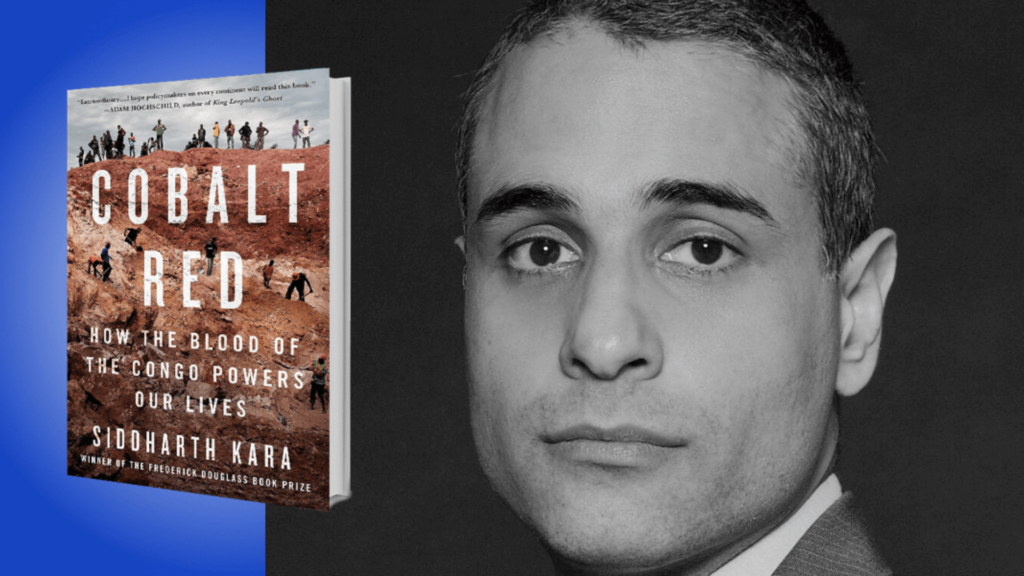
Author: Siddharth Kara, Associate Professor of human trafficking and modern slavery at Nottingham University, UK. This is a book about the Congo, Africa, minerals, policies, leadership (responsibility), and raw capitalism. Siddarth, following three-year research in the Congo, has provided a detailed account of how the search for a better life and environment by the world, led by developed economies and some of the biggest companies in the world, has left the Congo, and particularly the Copper belt regions of Katanga in ruins, poverty and environmental mess. What one will so much like about the book is that it provides detailed contextual and historical descriptions of how we arrived at this point in the Congo – political exploitation and instability. For many decades, from one political reign to the other, with sizeable influences from the West, political instability has provided the breeding ground for Congolese exploitation. The exploitation of children, working as artisanal miners, is not new. It is a new dimension of the rape on the country. What is also interesting about the book is the documentation of how global historical business, political and policy dynamics is now shaping the demand for colbalt in the Congo. Cobalt is used in the lithium-ion rechargeable battery in the world – “The demand side is driven by the fact that colbalt is used in almost every lithium-nion rechargeable battery in the world”. This ranges from the mobile phones we use, to tablets, laptops, e – bikes, e- scooters and other forms of consumer electronic devices. But if that was not enough underlying demand, Siddarth explained how the drive for a global cleaner environment and the consequent need for electric vehicles has dramatically driven up the demand for cobalt. Consider this quote from the book. “For the forseeable future, there will be no avoiding cobalt from the Congo, which means there will be no avoiding the devastation that cobalt mining causes the people and environment of the mining provinces of the DRC. Even after battery designers find a way to eliminate cobalt from rechargeable batteries without sacrificing performance or safety, the misery of the Congolese people will not end. There will surely be another prize slumbering in the dirt that will be made valuable by the global economy. Such has been the curse of the Congo for generations. Unspeakable riches have brought the people of the Congo little other than unspeakable pain”. This is not different from what has happened in the Niger Delta in Nigeria. For about 60 years, unbelievable amount of oil wealth has been extracted from the region to meet the world’s demand for oil and Nigeria’s successive government appetite for it, but the region continues to face environmental degradation and neglect. Finally, the book is a summary of the effects of failures in leadership and policy on the African continent.
Rule Breaker: Rebellious Leadership for the Future of Work
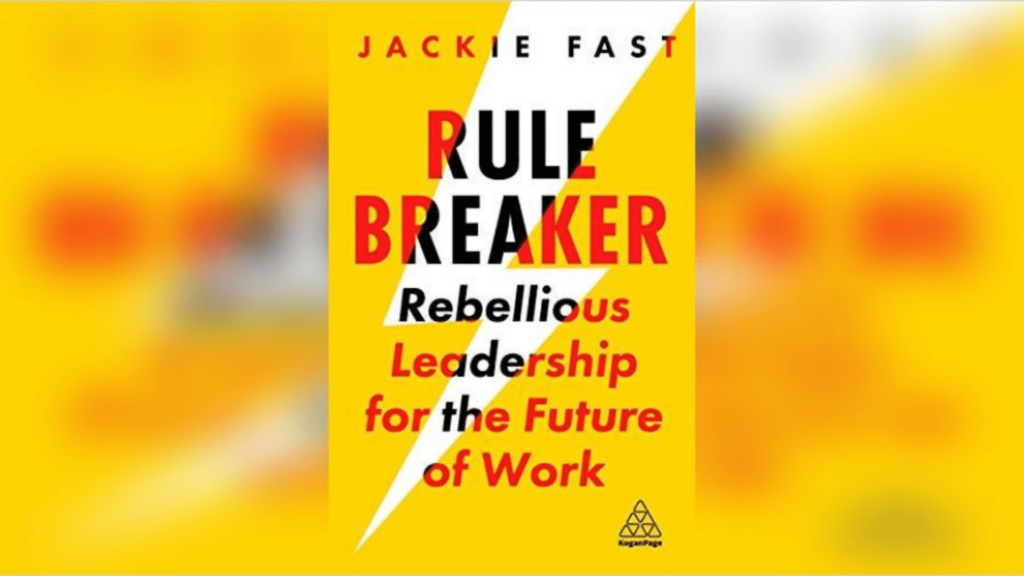
Author – Jackie Fast I think it is fitting this review coincides Hilda Baci breaking the Guinness World Record (GWR) for marathon cooking, beating the record set in 2019 by Lata Tondon. Cooking for 100 hours at a stretch is the kind of rebellious leadership that Jackie wrote about in this fascinating book. The first captivating sentence read in the book was in the introduction. Jackie says, “We are all obsessed with how the world is becoming vastly different from the world we used to know. But it is not the how part that you need to be preoccupied with. It is the why part of the shift that is particularly important to you. As Pastor Emmanuel Oleka, resident pastor of the Transforming Church Lagos Island said recently, “we do not have control over time and changes around us, but the ability to determine what happens overtime is within our grasp”. So, Jackie’s message is simple. New leadership requires breaking all the rules. While this assertion is rarely new, it is the simple way Jackie, using her personal experiences, breaks down the message that one will find most interesting. Reading the book, it becomes clear that breaking the rules is not for “exceptional people”. It can be learnt, cultivated, and become habitual. By continuously asking why, and in some cases, asking why not, Jackie demonstrated how she and the other examples in this terrific book have broken all the rules (certain assumptions and expectations) and achieving previously thought unachievable things. Jackie argued that we are now in a world with no boundaries, except those set by ourselves. Finally, a favourite topic in business and life – execution. Jackie showed in her book that because life is usually in repetitions and patterns, the ability to continuously improve and doing things better will make us exceptional.
Collapse and Recovery: How the Covid – 19 pandemic eroded human capital and what to do about it.
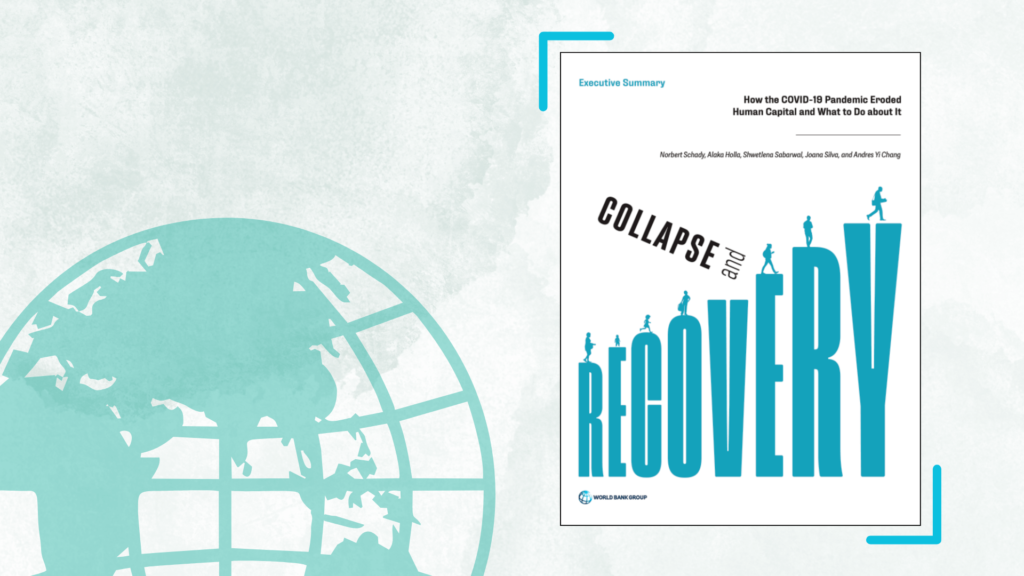
Authors: Nobert Schady, Alaka Holla, Shwetlena Sarbawal, Joana Silva, and Andres Yi Chang At the World Bank / International Monetary Fund (IMF) Spring Meeting 2023, this report was one of the most important released. While it is widely recognised that Covid – 19 pandemic impact on human capital was huge, little was known about the lingering consequences of the pandemic on young people. This report, using individual and household level data from low- and middle-income countries, articulated the likely consequences of the Covid – 19 pandemic on human capital and future implications for productivity, income growth, earnings, and inequalities if these losses are not reversed. The key element of the report is the dynamic impact of Covid – 19 pandemic on human capital, documenting how it affects human capital in the future. For instance, the report showed that “nearly 1 billion children missed a year or more of schooling and learned little, if anything, while schools were closed”. The report does not only examine what happened to the different sets of young people – childhood, adolescent, and early adulthood – critical ages of accumulation of human capital, but the dynamic effects of this impact many years to come. The implications are huge, affecting future productivities, earnings, income growth, and inequalities. Focus, therefore, should be on measures that helps to reverse the losses recorded during the pandemic. See more: https://www.worldbank.org/en/publication/human-capital/publication/collapse-recovery-how-covid-19-eroded-human-capital-and-what-to-do-about-it
ThinkBusiness Newsletter for 1st May 2023
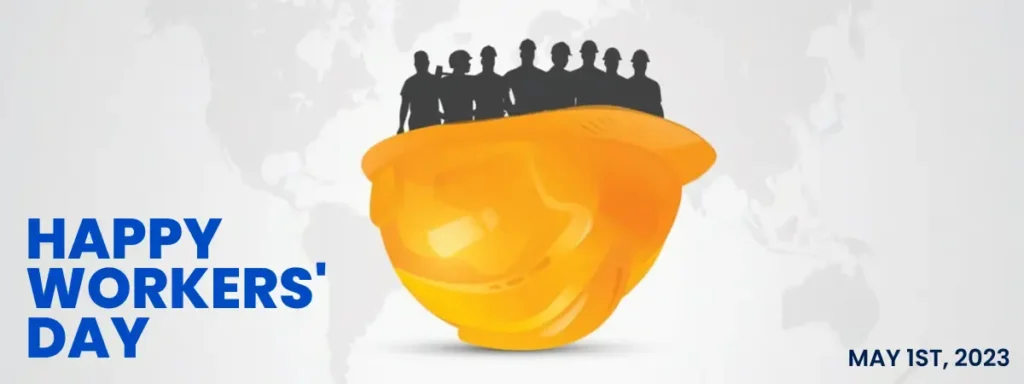
1 May 2023 E kaaro o, Ututu Oma, Barka da Safiya – Good morning, happy workers day, and welcome to ThinkBusiness Nigeria. ThinkBusiness Nigeria newsletter provides essential strategic information on markets, macro, and political economy issues and dimensions that drives business and markets. It provides the highly mobile professional, investor, businessperson with the essential information and intelligence he or she needs to know. It summarises the markets, but providing insights on key shifts and changes and what they mean for your investments. It scans the entire Nigeria and foreign news landscape and distills what really matters from many noises around, and share them with you. In addition, ThinkBusiness Nigeria ensures you understand the factors driving those developments by providing required background and contexts. Strategy and personal development are important, so ThinkBusiness Nigeria also incorporates strategy for winning in business and life, drawing experiences from businesses, sports, history, life etc to give simple but powerful analogies about life and success and their underlying patterns. Markets % Change YTD (%) NGX ASI 52,403.51 0.32% 2.25% Brent Crude Oil 79.54 1.17% -7.93% I & E FX Window 462 0.12% -3.11% FX Parallel Market 739 0.27% 0.14% Gold 1992.64 0.19% 9.84% Cocoa 3,156.00 -0.47% 21.11% In partnership with National Headlines Global Headlines News Analysis – 2023 Workers’ Day: Not a smiling day for Nigerian Workers As we celebrate another Workers’ Day on May 1, 2023, with more or less zero improvement from the last celebration of Workers’ Day, one must wonder what exactly the point of the celebration is for the average Nigerian worker as working conditions for workers in Nigeria are far from ideal. Workers are faced with low wages and they are in a state of not having enough at almost all times. The minimum wage was raised by the federal government to N30,000 in 2018. This equates to N1,500 per day (20 working days in a month) and N187 per hour (for a regular 8-hour workday). It is significant to observe that the cost of living in all of these has climbed in recent years rather than decreased. For instance in 2018, the average inflation stood at 12.09%, a 50kg-bag of locally produced rice stood at N18,000. While the minimum wage has not changed in the last 5 years, inflation has risen to 22.04% as of March 2023, and a BusinessDay survey of some markets in Lagos found that a 50kg bag of locally parboiled rice now sells for N43,000, this is about 140% increase compared to 2018. The cost of living for average Nigeria worker is also exacerbated by the rise in rent, transportation, medical expenses and electricity, among others, and for most workers, the cost of living is about 5.3 times more than the average salary. Even as it may, many private organizations and government agencies, including 15 state governments, have yet to implement the N30,000 minimum wage. Abia, Bayelsa, Delta, Enugu, Nasarawa, Adamawa, Gombe, Niger, Borno, Sokoto, Anambra, Imo, Benue, Taraba, and Zamfara are among the states that have failed to implement the minimum wage. In the private sector for instance, OK foods industry worker took to the street to protest in 2021 about the unfair payment by the company. The mixing boys worked for 12 hours with a daily wage of N1,500, which amounted to N125 per hour which is far lower than the minimum wage per hour. The little that is been paid, though some below the minimum wage, workers still struggle to receive it as and when due. For instance in Abia state, health workers and teachers are currently owed between 10 months and 27 months’ salaries. Also, April 13, 2023, Ad hoc workers of the Plateau State College of Health Technology, protested over 45 months of unpaid salaries. ASUU in Taraba state earlier in April declared total and indefinite strike action hinged on government’s failure to pay earned academic allowances, promotion arrears, fractional payment of salaries to staff as well as unsettled staff pension and gratuity scheme. Due to the poor working condition and also inability of the workers take-home to actually take them home, many workers has sought to find a greener pasture elsewhere and Nigeria has lost more workers to other nation in recent years. Nigerian nationals emerged the second highest recipients of United Kingdom’s Worker Visas between in one year. The UK report on migration disclosed that the UK Government Worker Visa approvals for Nigerians in 2022 increased to 38,007 from 12,405 in 2021, a 206% increase in one year. Many of these migrant cited poor working condition and underpayment as the major reason. To make average worker in Nigeria happy, the Nigeria government must shift from the mentality of not prioritizing workers welfare to making it the first among most important policies. Investing in workers welfare by paying a living wage and provision of social security is a path that will lead to better days in every facet of Nigeria’s economy and development. Also, government should ensure that labour law implementation cut across the private and public and that worker across board are fairly rewarded. The Week Ahead Winning! My weekly thoughts on how you can “win” this week. The inspiration to “winning” this week comes from an interesting article and interview in the May – June 2023 edition of the Harvard Business Review (HBR) – pg 56 – 59. HBR spoke with Tim Simmons, the chief product officer of Sam’s Club, a membership only retailer with 600 stores in the US and Puerto Rico. According to interview, Sam’s Club has recorded a 43% increase in net sales after making six operational changes in their business. The company made six structural changes / elements to how it operates and serve its customers. Four of those changes were related to how they improved the conditions in which their workers now serve their customers, including changing workers specialty roles by broadening job roles, streamlined shifts and made them predictable and supporting workers lifestyle, used technology to support workers productivity and increased average pay by 31%. What is the take? Out of six


